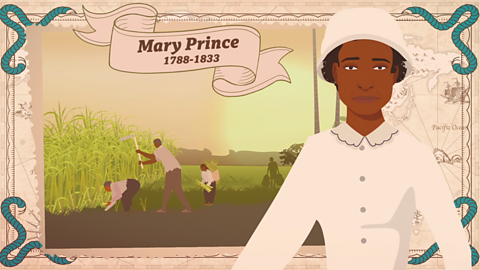Belfast and the slave trade
Even though it was tempting for the people of Belfast to view slavery as something that happened on the other side of the world, many of the city’s businesses were closely linked to it.
The slave trade wasn’t just about transporting captured African people across the Atlantic. This was only the middle leg of a three-part journey:
- Traders at ports within the British Isles would export manufactured goods to Africa where they would be exchanged for slaves.
- They then sailed to the Americas and sold the slaves to work on plantations that produced sugar, rum, tobacco and cotton.
- The goods from these plantations were then shipped back to Europe.
This didn’t just satisfy a labour gap, it allowed wealthy individuals - some of whom lived and worked in Belfast - to increase their profits because they didn’t have to pay for the labour it took to produce the goods. Essentially, companies exploited the slaves in order to maximise their wealth.
Waddell Cunningham
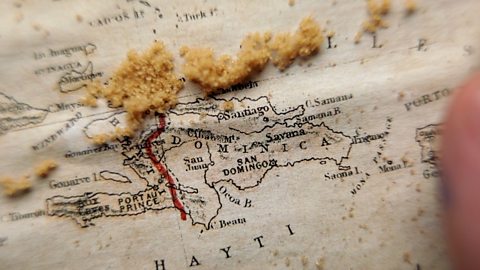
While it is a popular belief that Ireland played little to no role in the trade, several Belfast-based merchants profited from the slave trade, increasing their wealth and that of their companies.
Waddell Cunningham, one of the richest men in Belfast at the time, owned a sugar plantation on the Caribbean island of Dominica, which he called Belfast. Waddell’s ships carried slaves between the islands and supplied weapons and ammunition illegally.
Like many Belfast-based businessmen involved in the slave trade, Waddell’s money earned from slavery often went into the local economy, financing new businesses. Many people thought Waddell’s contribution to Belfast was great and he was considered a key member of society. It is only now that we are starting to understand these investments in the local economy were a way of distracting the local population from the slave labour used to generate this money.

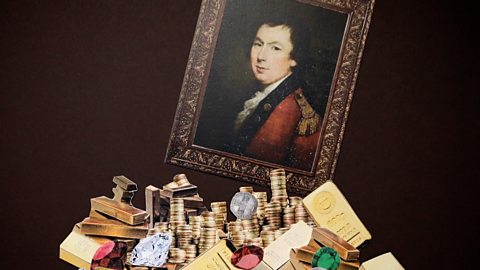
Modern slavery in Northern Ireland
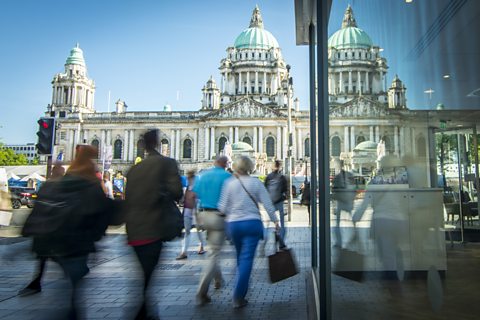
While you might think that modern slavery happens somewhere else far away in the world, it is a problem that is on the rise in the UK and Ireland.
In Northern Ireland, the number of victims identified almost doubled last year. Many people exploited by human trafficking and forced labour are women and children. In the UK, modern slavery can take many forms - domestic slavery or forced labour on farms, in construction, in warehouses, in bars and many other industries.
Although modern slavery can involve people trafficked from another country, it is also possible to be a victim within your own country. For example, people are forced into work without an employment contract because they can’t find work otherwise, and are often excluded from labour laws, which give them rights and protections as workers. The most common signs of domestic slavery are not being able to take time off and having your movements restricted.

What can I do?
You can start by looking at what companies use human trafficking and slavery to produce their products and purchase an ethically produced equivalent instead.
You can join and campaign with advocacy groups such as Anti-Slavery International and Amnesty International, which aim to end slavery throughout the world. These organisations lobby governments - including the UK - to change policies and laws that put people at risk of slavery. They also raise money to help people escape slavery and monitor the prevalence of slavery around the world.
Read and learn about slavery and its lasting legacies on society today. You may think you know everything but in truth there is still so much to uncover and rectify.
Find out more about Anti-Slavery International
Anti-Slavery International is the world’s oldest international human rights organisations. Founded in 1839 by British abolitionists, they work to address the root causes of slavery through education, advocacy and campaigning. The organisation also works with partners around the world to support people and communities affected by slavery and helps them to gain access to education, justice and compensation for those previously enslaved.
Test yourself
More on Slavery
Find out more by working through a topic
- count4 of 7
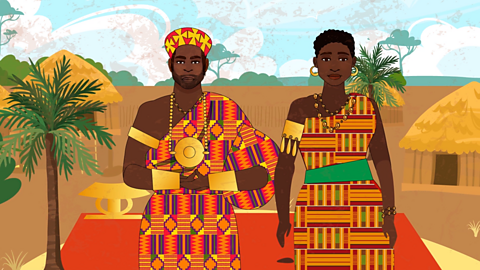
- count5 of 7
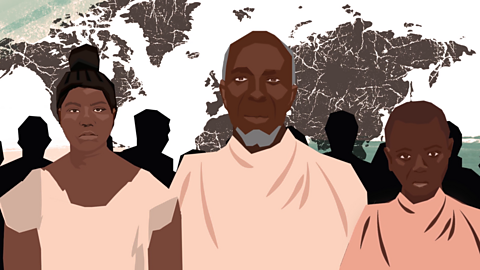
- count6 of 7
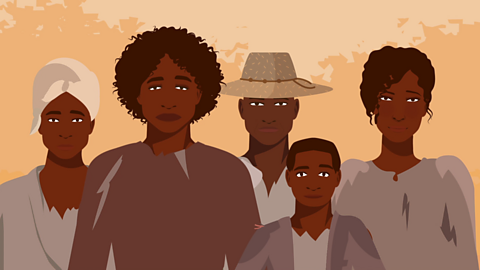
- count7 of 7
